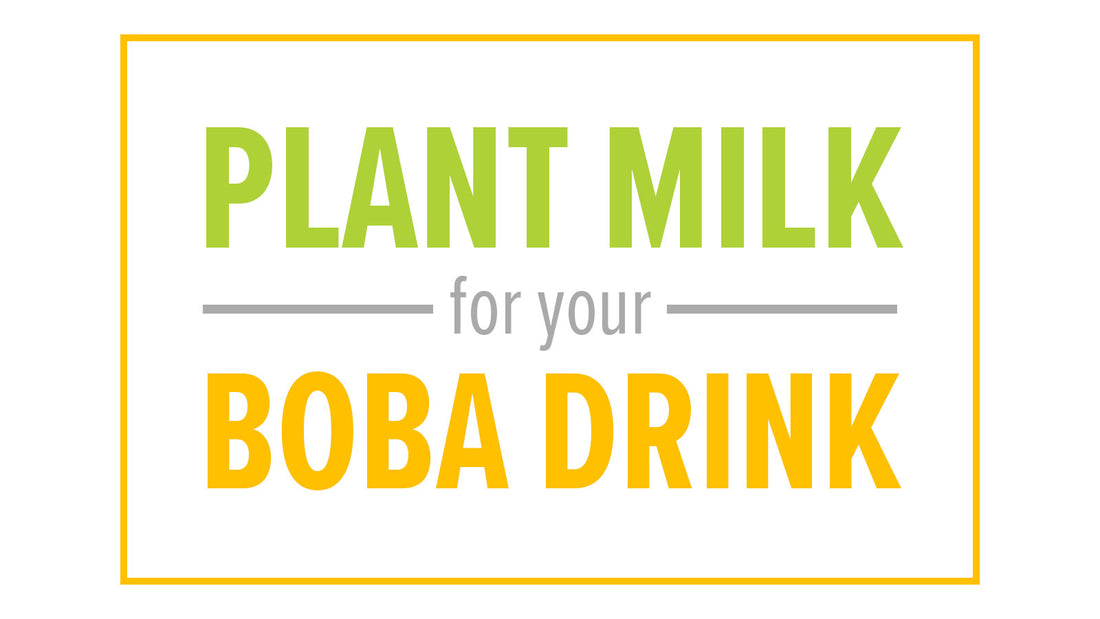Who knew there were so many plant-based substitutes for the dairy cow milk mainstream society takes for granted?
With a bit of inspired Googling, over 20 different types of plant-based milks were found, for everyone and anyone with dietary restrictions, allergies, or ethical concerns about lactating cows... and other animals.
*waves at the goats*
Plant-Based Milk Alternative Search Popularity Graph
Instead of summarizing all the information and commentary on each of these dairy milk alternatives, let's look at which might be the most popular across the United States of America, starting with the Top 5:

It's not surprising that soy milk and coconut milk has been better known for a longer time. We can thank the Chinese for the popularization of the former, and broader Asia/Oceania (but even east Africa!) for the latter.
It is however notable how coconut milk has risen in popularity, while soy milk has somewhat declined. They tend to be used in different situations, and maybe their divergent search popularity trend lines say more about the relative popularity of those situations than the popularity of them as milk alternatives?
More interesting is how almond milk exploded past both in the span of three years. Oat milk has done something similar, catching up to coconut milk and vying for the #2 spot within three years as well.
If you think rice milk is a tiny fraction of almond milk, the remaining plant milks we've found have even less search interest in America.

22 Dairy Substitutes Ranked by Search Popularity
Here's the full list and Google Trend rankings of the 22 plant-based milk alternatives we could unearth without being esoteric foodies:
- Almond Milk
- Coconut Milk
- Soy Milk
- Oat Milk
- Rice Milk
- Cashew Milk
- Hemp Milk
- Banana Milk -
- Flax Milk
- Pea Milk
- Macadamia Milk
- Walnut Milk
- Hazelnut Milk
- Pistachio Milk
- Peanut Milk
- Sesame Milk
- Potato Milk
- Quinoa Milk
- Pumpkin Milk
- Sunflower Milk
- Chia Milk
- Tiger Nut Milk
Almond Milk
Did you know California produces 80% of the world's almond supply? Despite almonds not being native to the land?
Coconut Milk
In fairness, there's actually two different general types of coconut milk: the one used in drinks and the one used in foods like curries.
Soy Milk
A classic alternative to cow's milk that works in just about every situation cow milk is used in.
Oat Milk
Increasingly popular as almond milk gets bogged down for the environmental and sustainability concerns surrounding almond production.
Rice Milk
A little unexpected as this is essentially rice water. It's supposedly the least likely to cause an allergic reaction among all the known milk alternatives.
Cashew Milk
A pricey, ecologically questionable alternative like almond milk and a no-go for those with nut allergies, but it's known for its natural richness and creaminess.
Hemp Milk
Like soy milk and unlike almost all other plant-based milk alternatives, hemp milk is considered a complete protein. The flavor may not be to everyone's liking though.
Banana Milk
It's banana fruit flesh blended with water, not banana-flavored milk that plenty of people in the world already love.
Flax Milk
Made from flaxseeds, it's somewhat similar to hemp milk in having a distinctive taste that may not work for everyone while also being thinner in consistency.
Pea Milk
One of the most nutritional and environmentally-friendly plant-based dairy alternatives, it often comes with added ingredients to improve taste and texture.
Macadamia Milk
Many Americans are probably more familiar with chocolate-covered Macadamia nut treats from Hawaii but, surprise, a milk alternative can be made from them too.

Walnut Milk
Another nut-based dairy substitute, walnuts also come from the golden state of California, with similar eco-sustainability questions.
Hazelnut Milk
Among the newer nut milks, availability is still in its infancy, but more than a few people consider it the best alternative to cow milk in terms of flavor.
Pistachio Milk
Not much to say other than the cool green tint the milk usually comes with, and that it's pricey like many of the more novel and less popular options here.
Peanut Milk
Sometimes lauded for using much less water than other nuts, making it more sustainable environmentally, peanut allergies seem more common than other nuts.
Sesame Milk
Very new, and supposedly richer in calcium than traditional dairy milk, which is what we were all taught to drink for strong, healthy bones.
Potato Milk
Is there nothing the almighty potato can't do? While this exists, the jury's still out on whether or not it actually tastes and functions as a good milk alternative.
Quinoa Milk
A grain-based milk substitute that sounds good on paper but is so novel that it can hardly be found outside of die-hard make-it-at-home enthusiasts.
Pumpkin Milk
No, not pumpkin spice milk, literally pumpkin milk, made from the seeds. Beware of pumpkin-flavored milk, whether mixed with cow milk or other plant-based milks.
Sunflower Milk
Also a seed milk as an alternative for those with nut allergies or iffy about how much water is used to produce almonds and cashews. Cheaper, novel.
Chia Milk
Not sure if this is a thing, because while it should technically be possible, searches came back with options that cheat by using other plant-based milks as a base.
Tiger Nut Milk
Man, what a name. Despite the name, tiger nuts are not actually nuts—or tiger nuts—but tubers, like potatoes. Think of tubers as plant fat, the part of the plant that stores nutrients for later use.

What have you tried?
Odds are, most of you are like us, being only familiar with the usual suspects of age-old soy and coconut milk as well as the popularized almond and oat milk options more easily found on the market. Coconut milk generally goes well with most juices and—not gonna lie—almond milk and oat milk usually works quite well in milk teas.
The rest? We're as ignorant as we are iffy about them.
But are you?
Instead of relying on the aggregated wisdom of Google search results, we'd love to hear your anecdotal thoughts on mixing some of these dairy alternative milks into our boba teas and juices.
Make a short video of you mixing a plant milk into our drinks and giving us all your verdict on yay or nay, send it to us, and we'll send you a free 6-pack of our drinks in return, to continue your experiments... or replace the boba drink you just ruined.

